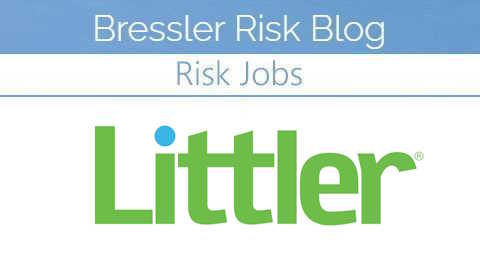Judicial Conflicts — Appearances of Impropriety, Public Confidences “Undermined,” Politics, and Ethics
Posted on
“US judge’s financial conflict leads to revived lawsuit against big banks” —
- “A US appeals court threw out the dismissal of an antitrust lawsuit accusing 10 large banks of overcharging investors on corporate bonds, saying the trial judge should have been recused because his wife owned stock in one of the banks.”
- “The 2nd US Circuit Court of Appeals in Manhattan said that while US District Judge Lewis Liman ‘almost certainly unknowingly’ had a conflict of interest, his partiality could reasonably be questioned because his wife’s ownership of Bank of America stock created an ‘appearance of impropriety.'”
- “Tuesday’s unsigned decision came nearly three years after a Wall Street Journal investigation found that more than 130 federal judges had since 2010 violated federal law and judicial ethics by overseeing cases involving companies in which they or family members owned stock.”
- “Liman, an appointee of former President Donald Trump, was assigned the lawsuit in April 2020 and dismissed it with prejudice in October 2021, three months after his wife sold $15,000 of Bank of America stock.”
- “In February 2022, a court clerk alerted parties to the conflict, writing of the judge that the ‘ownership of stock neither affected nor impacted his decisions.'”
- “The banks said Liman’s failure to uncover his conflict didn’t require recusal or reviving the case. But the appeals court found a ‘legitimate risk’ that similar violations could undermine public confidence in the judicial process.”
- “US Supreme Court Chief Justice John Roberts highlighted in his 2021 annual report on the judiciary a need for judges to be vigilant about financial conflicts”
“Recusal Of Judge Who Reported Attorney Misconduct” —
- “The South Carolina Advisory Committee on Standards of Judicial Conduct opines on the recusal of a judge who reported an attorney to discipline authorities:
- “A family court judge should recuse himself/herself from presiding over cases in which one of the attorneys is a person the judge reported for misconduct.”
- “Rule 3E(1)(a) states that ‘[a] judge shall disqualify himself or herself in a proceeding in which the judge’s impartiality might reasonably be questioned, including but not limited to instances where the judge has a personal bias or prejudice concerning a party or a party’s lawyer….’ While the judge may not have a personal bias, the rule is not solely limited to such bias, and certainly, reporting an attorney as required by Canon 3D(2) could be construed (even if it is entirely warranted) as bias if known to the parties and their counsel.”
- “However, in the case of disciplinary proceedings, certain proceedings are confidential. For example, if it is determined that the complaint does not allege conduct that, if true, would violate the Rules of Professional Conduct, it will be dismissed without notice to the attorney. Rule 19(a), RLDE, Rule 413, SCACR.”
- “Should the matter progress, the lawyer will receive a notice of investigation, including the initial complaint, and a request for a response. Id. However, the notice of investigation and initial complaint (and the attorney’s response) are not available to the public. Thus, the only person that could question the judge’s impartiality would be the attorney, and the attorney would have to reveal the investigation into his/her conduct, an act that the lawyer is not likely to want to do. Yet, if the matter was public, the judge’s impartiality would or could be called into question. Therefore, it would seem that the best course of action is for the judge to recuse himself/herself from presiding over matters in which the attorney appears.”
“New judge assigned to lawsuit over judicial retention ballot referral” —
- “A new judge has been assigned to a lawsuit challenging a legislative ballot referral that would end most judicial retention elections in Arizona.”
- “Progress Arizona is suing to prevent Senate Concurrent Resolution 1044 from appearing on the ballot. The group alleges SCR 1044 is unconstitutional because it bears a deceptive title and contains more than a single amendment to the state constitution.”
- “The measure states that only judges who have been convicted of a felony, declared bankruptcy or been found not to have followed judicial standards should stand for retention.”
- “‘It basically eliminates retention, but then it also really changes the makeup of the judicial performance review committee, and those are separate amendments that have to be voted on separately,’ said Jim Barton, an attorney for Progress Arizona.”
- “Kory Langhofer, an attorney for the legislative leaders intervening in the case, disputes the lawsuit’s claims. ‘The title of the act — Judicial Accountability Act of 2024 — is exactly what it is. It’s about judicial accountability,’ Langhofer said. ‘Regarding the separate amendment issue, I think when the court looks at it, it will find that everything is sufficiently interrelated and that it will qualify for the ballot.'”
- “Currently, trial judges in Maricopa, Pima, Pinal and Coconino counties, appeals court judges and Supreme Court justices are subject to Arizona’s retention election system.”
- “Citing this set of circumstances, Judge Joseph Welty, the presiding judge of the Maricopa County Superior Court, assigned the case to Judge John Napper, a Yavapai County judge.”
- “In Arizona’s rural counties, like Yavapai, judges are elected. Therefore, Napper is not subject to the retention election process the ballot referral seeks to change.”
New York Advisory Committee on Judicial Ethics: “Judicial Ethics Opinion 23-144” —
- “Question: May a full-time support magistrate in one county serve as a volunteer arbitrator in the small claims part of a different court in another county?”
- “Discussion: We have advised that service as a volunteer arbitrator in small claims court is not performed in a “private capacity” within the meaning of Section 100.4(F). Thus, the Rules Governing Judicial Conduct do not prohibit a full-time judge or quasi-judicial official from serving in that capacity, as long as such service does not conflict with official duties. We note that a support magistrate does not hear appeals, whether from the small claims part or otherwise, and the risk of any conflict is further reduced by the fact that the small claims part is in another county.”
- “Accordingly, we conclude this support magistrate may volunteer as an arbitrator in the small claims part of a different court in another county. However, the support magistrate should consult the Office of Court Administration’s Nonjudicial Ethics Helpline (888-283-8442; inside-ucs.org/oca/ethics/) for guidance on any issues that may arise under Part 50, including any administrative approvals that may be required.”
“Ex-Bankruptcy Judge Agrees to Jackson Walker Romance Questioning” —
- “A former judge tied up in litigation related to his relationship with a onetime Jackson Walker LLP partner agreed to let the Texas law firm depose him over key questions about the romance.”
- “Jackson Walker and David R. Jones, the former Houston bankruptcy judge, agreed to a seven-hour deposition on July 18 on topics related to his previously-secret relationship with attorney Elizabeth Freeman. The questioning will come as Jackson Walker battles a government effort to claw back more than $13 million in fees the firm collected in cases that were handled by Jones, while it employed Freeman.”
- “Chief Judge Eduardo V. Rodriguez of the US Bankruptcy Court for the Southern District of Texas signed off on the stipulation Tuesday.”
- “Jackson Walker has said Jones’ testimony is crucial in determining whether anyone at the firm was aware of the relationship. Jones previously criticized the request, saying its true purpose is to harass and embarrass him.”
- “The deposition agreement came a day after the Justice Department’s bankruptcy unit, the US Trustee’s office, forcefully pushed back against Jackson Walker’s argument that it didn’t violate any ethical rules in not disclosing the relationship because it didn’t know about the romance.”
- “The firm has also said it took internal steps to address the matter once it learned of the relationship. But its failure to to disclose the connection publicly shows that it knew it had an ethical problem but consciously decided to keep the romance a secret, the US Trustee said.”









